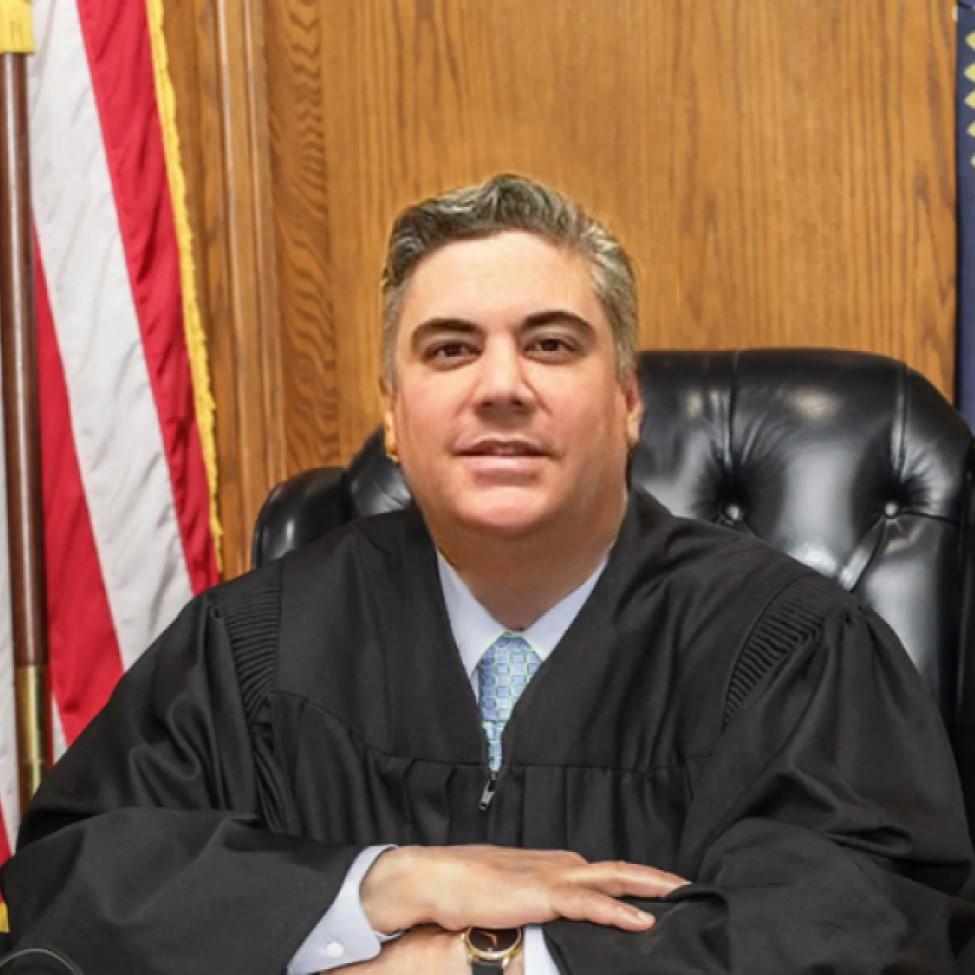
$1.8 Million In State Grants Allocated To Aid Flood-Prone Communities Along The Hudson River
Governor Kathy Hochul recently announced grant awards of over $1.8 million for 26 projects in Hudson River Communities. Pace University was awarded $49,811 for “Flood Resilience Network Land Use Leadership Alliance Training Program,” a project with the Land Use Law Center that will implement a community-based Land Use Leadership Alliance (LULA) training program for five to seven municipalities that are members of the Hudson Valley Flood Resilience Network.
Elisabeth Haub School of Law at Pace University Welcomes Hon. James L. Hyer to its Board of Visitors
The Elisabeth Haub School of Law at Pace University is pleased to announce that Hon. James L. Hyer has joined its Board of Visitors. Judge Hyer is an elected New York State Supreme Court Justice in the Ninth Judicial District and a distinguished Haub Law alumnus from the class of 2005.
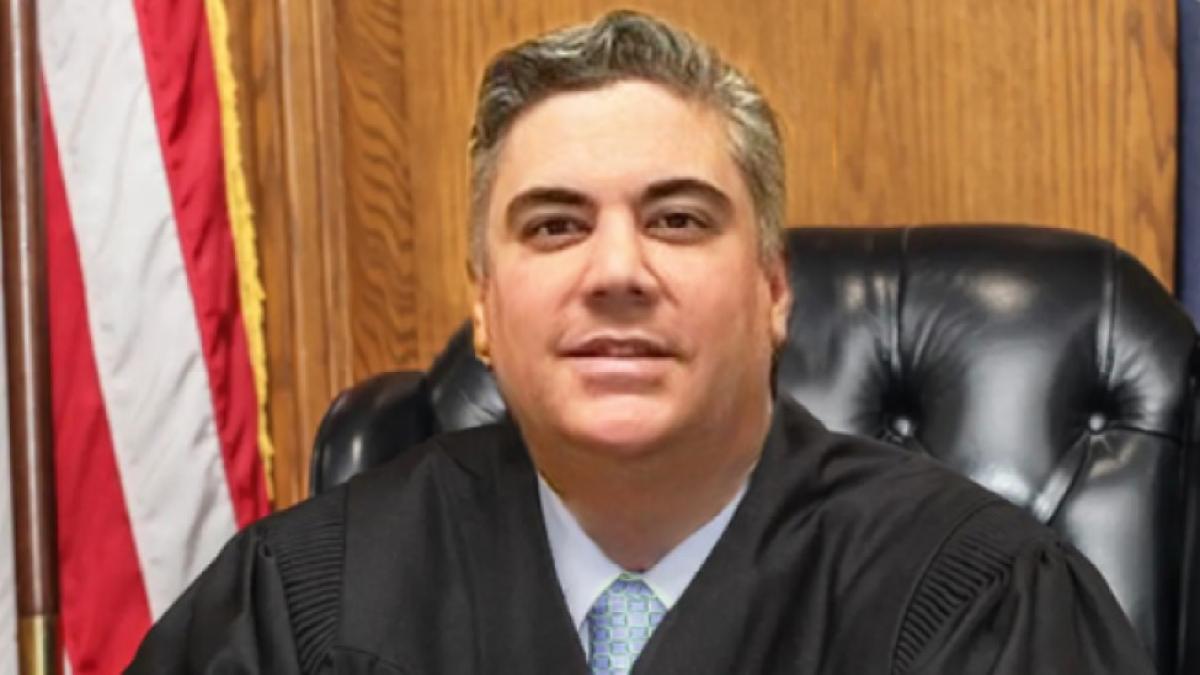

The Elisabeth Haub School of Law at Pace University is pleased to announce that Hon. James L. Hyer has joined its Board of Visitors. Judge Hyer is an elected New York State Supreme Court Justice in the Ninth Judicial District and a distinguished Haub Law alumnus from the class of 2005.
“I am proud to welcome Judge Hyer to our Board of Visitors,” said Dean Horace E. Anderson Jr. “Judge Hyer is a champion of public service, human rights, diversity in the law, and access to justice. Importantly, he is also committed to advancing the best interests of his alma mater, Haub Law. I look forward to working with him to ensure the continued success of the Law School.”
Judge Hyer is the Chairman of the 9th Judicial District Access to Justice Committee and is a Commissioner of The Richard C. Failla LGBTQ Commission of the New York State Court System. Judge Hyer previously served as an Administrative Law Judge for the Westchester County Human Rights Commission. He has served as the President of the Westchester County Bar Association, and served as Chair of the Law Day Committee, Public Service Committee, Awards Committee, as well as a Hearings Officer for the Grievance Committee. Judge Hyer is a member of the New York State Bar Association where he served on the House of Delegates, Nominating Committee, Task Force on Incarceration Release Planning and Programs and serves as a New York Bar Foundation Fellow. Judge Hyer was awarded a New York State Senate Commendation for Human Rights Advocacy, Haub Law School Leading Attorney Under 40, Westchester Bar Association Leadership Award, LGBT Bar Association of New York Community Excellence Award and Westchester Residential Opportunities Human Rights Champion Award. Judge Hyer holds a BA in Political Science from Ramapo College of New Jersey, and a JD and Environmental Law Certificate from the Elisabeth Haub School of Law at Pace University. Judge Hyer has served as an adjunct professor and published a number of scholarly articles in various areas of the law.
The Board of Visitors furthers the interests of the Law School by involving alumni and friends in significant issues of concern to the School, and by building a sense of community that fosters pride and participation. The Board is also dedicated to fostering a strong interest in the mission of the Law School by helping to recruit outstanding students, hiring graduates and encouraging financial support from public and private sources. The Board is currently co-chaired by Alfred E. Donnellan '81, Managing Partner, DelBello Donnellan Weingarten Wise & Wiederkehr, LLP and Kathleen Donelli ’85, Partner, Goldschmidt & Genovese, LLP.
Faculty Focus: Professor Barbara Atwell
Professor Barbara Atwell joined the faculty at Haub Law in 1986. A health law teacher and scholar, she was also appointed as the Director of Diversity, Equity and Inclusion in 2009. Prior to joining Haub Law, she clerked in the sixth circuit and worked as an associate with Arnold and Porter. Now, in her 38th year of teaching at Haub Law, Professor Atwell enjoys all of the courses she teaches, with Bioethics and Medical Malpractice having a slight edge as her favorite.


Professor Barbara Atwell joined the faculty at Haub Law in 1986. A health law teacher and scholar, she was also appointed as the Director of Diversity, Equity and Inclusion in 2009. Prior to joining Haub Law, she clerked in the sixth circuit and worked as an associate with Arnold and Porter. Now, in her 38th year of teaching at Haub Law, Professor Atwell enjoys all of the courses she teaches, with Bioethics and Medical Malpractice having a slight edge as her favorite. Learn more about Professor Atwell's journey to law, her scholarship, and things you may not know about her such as her passion for Feng Shui, in this Q&A.
What was your journey to ultimately becoming a professor at Haub Law?
After receiving my undergraduate degree from Smith College, I worked at IBM for three years. From there, I went to Columbia Law School. After graduating, I clerked for a year on the United States Court of Appeals for the Sixth Circuit, in Cincinnati, Ohio. Still unsure about my career path, I decided to move to Washington D.C. and joined Arnold and Porter as an associate. While I was in law school, I thought about pursuing a career in academia, but it wasn’t until I was working at the firm that I began to seriously consider it again. I had a friend who started teaching a few years before I did, and he encouraged me to pursue a career in teaching. I ended up at Pace in part because of the location, and in part because of the people I met when I interviewed here.
What was your experience working at the United States Court of Appeals for the Sixth Circuit?
Working on the Sixth Circuit was amazing. I had the opportunity to watch many oral arguments – in some ways, it’s like watching a lot of Moot Court arguments because the Sixth Circuit is, of course, an appellate court, so you are watching lawyers come in and make oral arguments every few weeks or so. My responsibilities as a judicial clerk included drafting opinions and writing bench memos. In other words, I did a lot of legal writing, which was quite beneficial for my subsequent positions.
Another invaluable part of my clerkship experience were the people I worked with. Judge Nathaniel Jones had three clerks, and we became close friends, so in addition to being a great learning experience, my time as a clerk was like working with family.
Would you recommend clerking as an entry point before getting out into the legal workforce?
Absolutely! Every judge and every clerkship is different, but often times it gives the clerk an opportunity to refine his or her research and writing skills. If you have a chance to clerk for a judge, you should definitely take it because I don’t believe there is anything else quite like it. For me, it truly was a wonderful experience. It also enhances your resume.
What made you want to practice health law?
There wasn’t one single precipitating factor that pushed me toward health law. I clerked in the midst of the Reagan Administration when people were losing social security disability benefits. I remember seeing cases where people who, for example, complained of pain that prevented them from working were suddenly losing their benefits. My recollection is that some of these people lost their disability benefits without any documented change in their medical conditions. Later, at Pace, I began teaching health law when the school was building up the health law program. I volunteered to teach health law, and I’ve been doing so ever since.
What is your favorite course to teach?
Well, I really enjoy teaching Bioethics and Medical Malpractice -- that is probably my favorite class. To be honest, I really enjoy all the health law classes. I’ve also begun to teach Poverty Law, which I also find quite rewarding.
Another course that was special to me was a course I created a few years ago called Great Migrations. I think it was just a 1 credit course, and it was a lot of work because there was no casebook, but I taught things like the Chinese Exclusion Act, Japanese Internment, Operation Wetback, etc.
How did you get involved with diversity and inclusion at Haub Law?
I was appointed as director of diversity in 2009. I was appointed to help ensure that the Law School is a welcoming and inclusive environment for people of all genders, races, cultures, ages and abilities. As Director of DEI, I serve as a resource for students, faculty, and staff and regularly meet with heads of student organizations, assist in planning events, and advocate for certain institutional changes on campus. My role runs the gamut and I truly enjoy it.
You have a number of publications, which were your favorite to work on?
The last one I wrote was very interesting to me, From Public Health to Public Wealth: A Case for Economic Justice. This article was in the process of being edited when the pandemic hit. And since the article has a section on public health, I was happy to be able to edit it before the final publication and add in the current information we had at the time. Things changed so rapidly, though, that even as I added new information, it was quickly becoming dated!
In some ways my article Mainstreaming Complementary and Alternative Medicine in the Face of Uncertainty was my favorite to work on because I am a big believer in complementary and alternative medicine. Teaching health law gave me insights into how traditional medicine and complementary and alternative medicine can fit nicely together.
What advice do you have for students?
My biggest piece of advice would be to really take advantage of all the opportunities that are available to you as a law student. This includes getting to know professors, participating in student organizations, and getting involved in work outside of the classroom (while not slacking off on class work).
Can you tell me about your certification in Feng Shui?
I think it was 2004 when I went to feng shui school. There is a bit of background that goes into this – in 2000, I was diagnosed with breast cancer, and I attended a yoga class. My yoga instructor had books about Feng Shui. At the time I didn’t know anything about it. My journey of healing led me to acupuncture and to feng shui. In some ways, they are similar in that they are both focused on energy. Acupuncture balances the body’s energy, and feng shui is about balancing the energy of our physical spaces. Feng Shui is really about balance and de-cluttering. I haven’t had time to do much Feng Shui in recent years. When I retire, I will probably dedicate some of my time to Feng Shui.
What is something that your students or fellow faculty do not know about you?
I’ll give you a couple of personal tidbits that not everyone knows. First, my children are adopted and so I am a strong advocate for adoption as a way to form a family. Both of my children have met their birth mothers, and my daughter also recently met her birth father.
Second, my partner is a man I started dating in 2014, but we met back in 1976 at the beginning of our senior year in college. I was at Smith College, and he attended Williams College. We met at a party and remained friends. Although we lost touch for a few years in the middle as we each got married, had kids, etc., we never lost touch for very long. You never know when a longstanding friendship may evolve into a life-long partnership.
Natalie Lara '25: Bridging Science, Policy, and People
Natalie Lara ’25 is a first generation Mexican American whose parents both came to the United States as young adults. Natalie was the first in her entire extended family to attend undergraduate school and now is the first to attend law school.
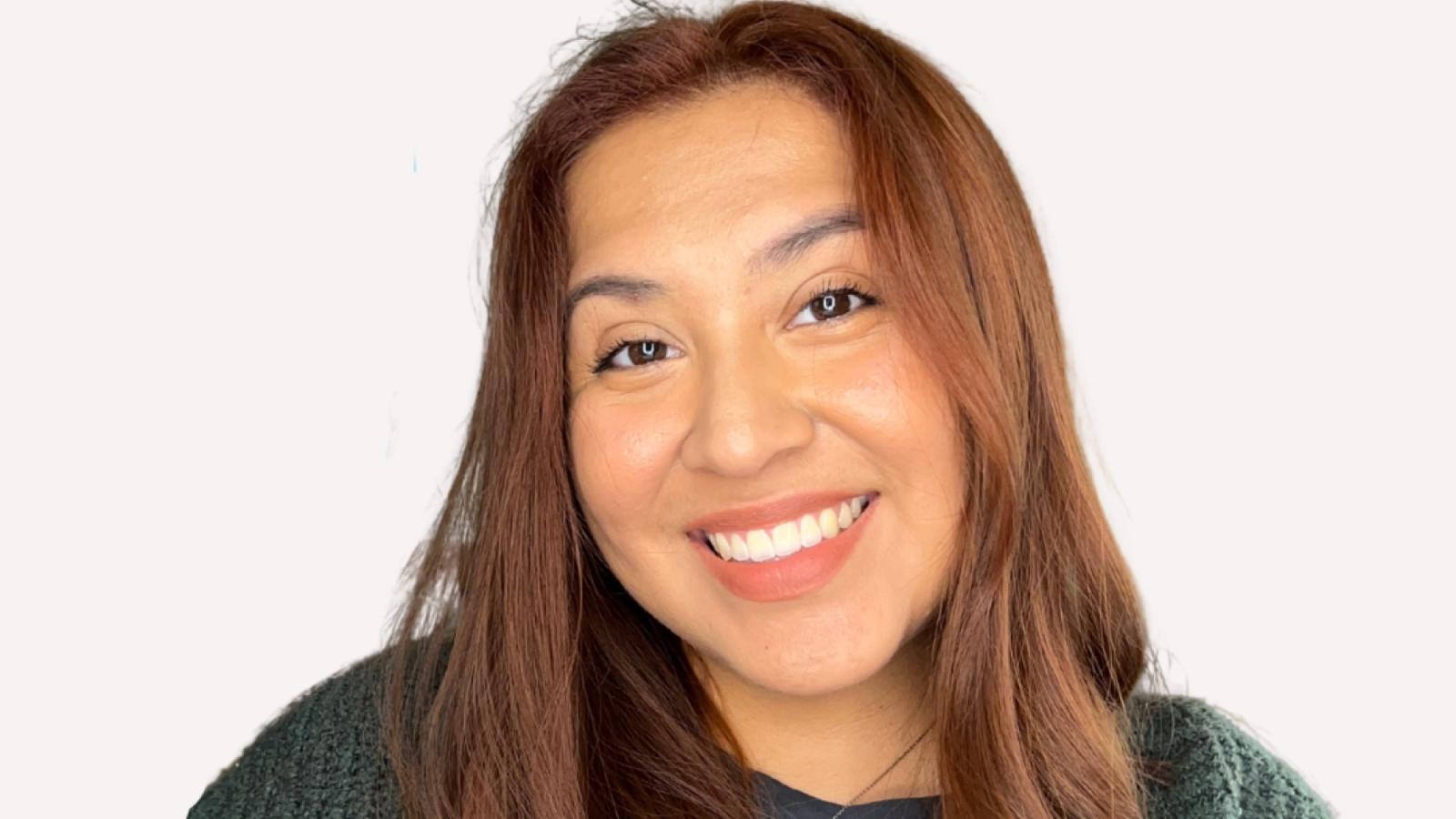
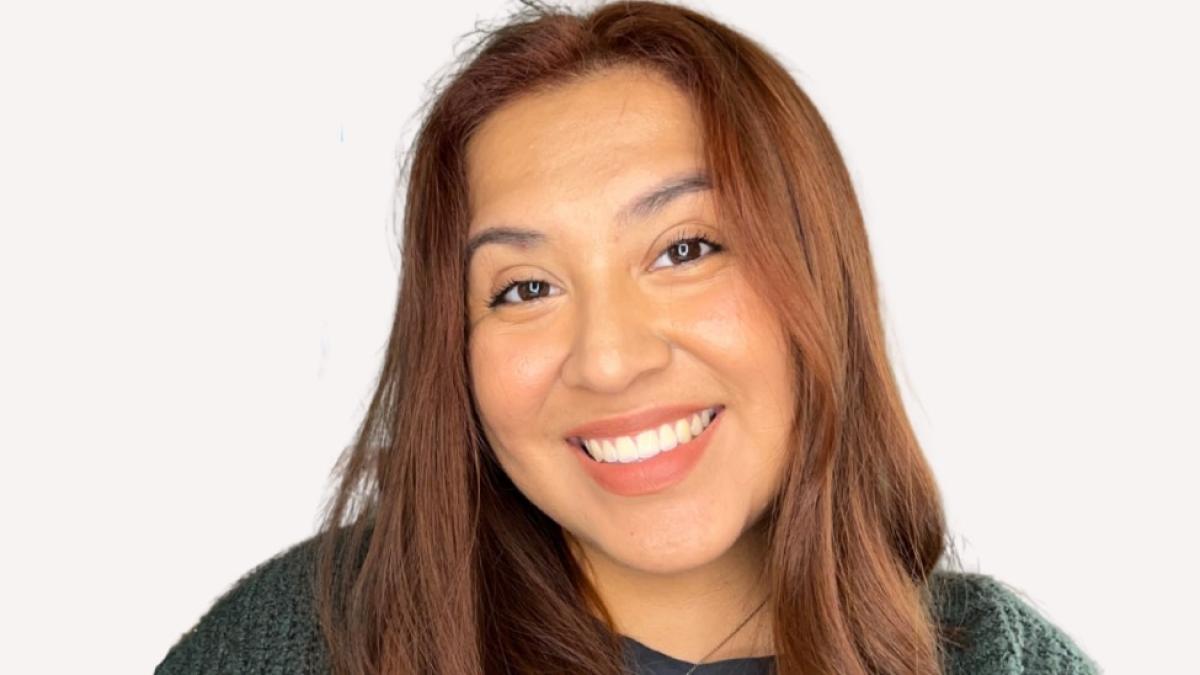
Natalie Lara ’25 is a first generation Mexican American whose parents both came to the United States as young adults. Natalie was the first in her entire extended family to attend undergraduate school and now is the first to attend law school.
Originally, Natalie wanted to become a climate researcher, but after taking her first environmental policy course she learned more about environmental law and was intrigued. “Environmental law really stood out to me, because my professor had explained it as a way to bridge science, policy, and people,” said Natalie. “I knew I liked working with people, but I also wanted to advocate for better environmental conditions. Furthermore, growing up in South Florida, hurricanes were a common occurrence. I saw how climate change was affecting my community and other communities like mine, and I realized that I wanted to use the law to advocate for a sustainable future for all.”
So far, Natalie has had a very well rounded and positive experience at Haub Law. She finds the professors engaging and enthusiastic and all are willing to go beyond the classroom and act as mentors to help their students navigate their legal careers. “Professor Narula in particular always inspires me,” said Natalie. “In addition to her impressive legal career and despite any injustices that she's confronted throughout her life, she is still kind to everyone, and she reminds us to do the same. She reminds her students that it's important to process emotions as we feel them, whether we have great wins or great losses. This has been invaluable to remember.”
During her time at Haub Law, Natalie has participated in the Land Use Law Center legal externship and helped to develop the Climate Resilient Development workshop series. She is also president of the Environmental Law Society here at Haub Law, secretary of the Latin American Law Students Association, and Hospitality Vice-Chair for the National Environmental Law Moot Court Competition.
Natalie is pursuing an Advanced Certificate in Environmental Law and when she graduates in 2025, she hopes to find herself working in environmental law. “I would love to end up at a firm full of people who are inspired by the law and continue to challenge themselves.”
School-life balance is important to Natalie and even as a 1L last year she was able to read 100 books for leisure! “It is important to dedicate time to focus on yourself outside of your studies,” said Natalie.
Ellie Taranto '24: Inspired by a Life of Advocating for Others
It was 4L Ellie Taranto’s own personal journey that inspired her to pursue a career in law.
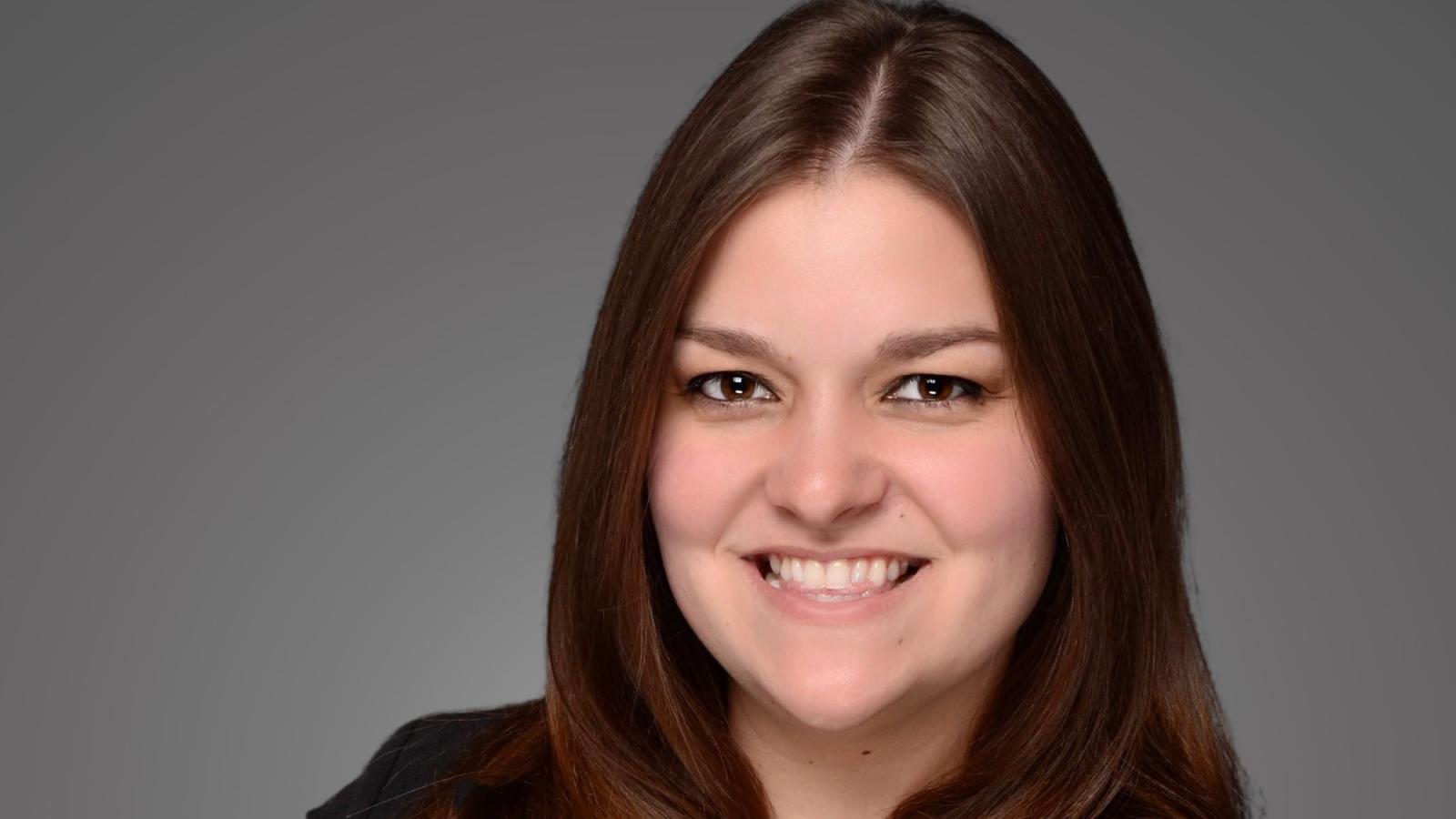
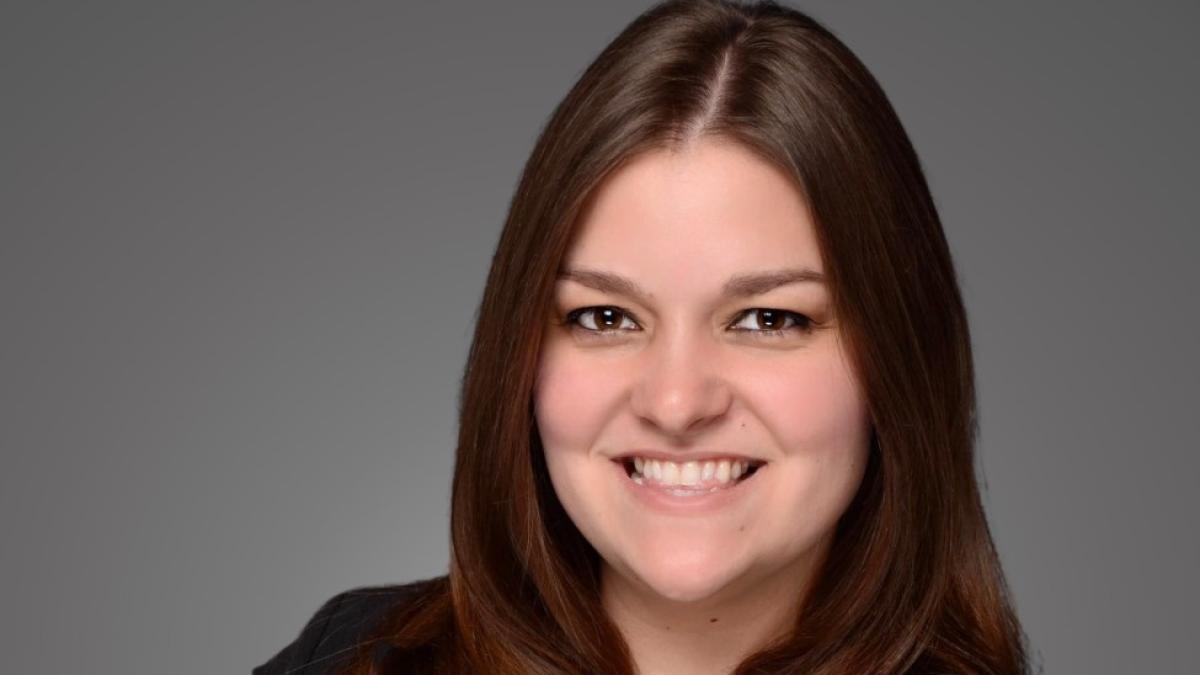
It was 4L Ellie Taranto’s own personal journey that inspired her to pursue a career in law. “My older (twin) brother, Dennis, is an expert when it comes to all things YouTube, Raffi, Thomas the Train, and Disney World. Dennis has autism and has limited communication,” said Ellie. “He requires constant supervision for his safety and attends a day program with other adults with different abilities. My mother has been an amazing support system for my siblings as we navigate our lives. When a member of your family has special needs, your entire family's life depends on putting their needs first.” Witnessing her mother first-hand navigate the legal system to ensure that her brother Dennis had proper guardianship, care, and benefits inspired Ellie to want to pursue a career that similarly helped others.
“My first legal job out of undergrad was as a legal assistant at a workers' compensation and Social Security law firm,” said Ellie. “I loved being able to help people in this capacity during difficult periods of their life, but more importantly I learned so much about the legal system.” This job was a turning point for Ellie as she realized that it was through the law that she desired to help others. She has continued to solidify this decision through then working full time as a paralegal in personal injury and insurance recovery prior to and during her time at law school.
When she applied to law school, of primary importance to her was her ability to not just continue to work while she attended school, but to have the ability to participate in important law school experiences even as a “non-traditional” student. “With the help of Adjunct Professor Lisa Denig, I was able to complete a Guided Externship (or, a "flex"-ternship as Professor Denig and I refer it to) during my 3L year.” Since she was working full-time, Ellie could not participate in a traditional externship or clinic, however, the guided externship allowed her the opportunity to receive class credit while being placed at a company outside of the school, during non-traditional working hours. “This opportunity allowed me to gain invaluable experience in a new and unfamiliar field to me on a schedule that worked best for me. I am forever grateful for that flexibility.”
Ellie is also on Pace Law Review, where she is serving as the Executive Promotions Editor for this school year as they’re hosting the Symposium later this Spring. Ellie notes that “Pace Law Review (and our other two law reviews as well) went above and beyond to make sure that Flex students were offered the same opportunities that were traditionally for full-time students.”
For Ellie, knowing she wanted a career helping others led her to explore law as an option, but it was her work experience that solidified that choice. “By gaining work experience in the legal field, I not only solidified my interest in law, but I also gained other skills that have benefited me in my studies and will ultimately help in my career. I would encourage others thinking about law school to consider volunteering or gaining work experience in law as well before applying to law school to ensure their interest in the field.”
In her spare time, Ellie loves utilizing her Peloton, spending time with her husband and stepson, and taking long walks with her (rescue) dogs, Tucker and Cooper.
Meet Kris Abbe, Talent Development Manager
Meet Kris Abbe, Talent Development Manager
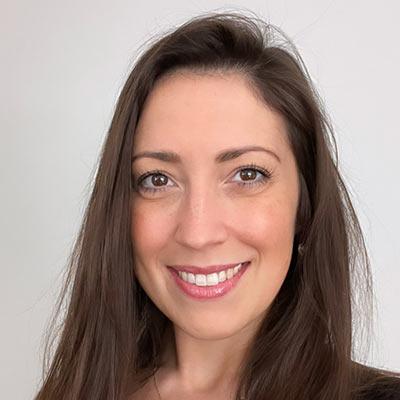
Pace start date: June 26, 2023
When do you feel like you are part of a community here at Pace? (Is there a program or activity that contributes to your sense of community?)
I feel most part of the community when I am collaborating with our various departments in developing, planning, and delivering training opportunities for our departments and offices. When we come together and experience growth through learning, we become closer as a team and proud to further our institution’s mission and meet our strategic goals. It’s important to me to give back to an amazing community that gives so much support to our Pace students.
How do you contribute towards the success of Pace?
As a Talent Development Manager in Human Resources, my main focus is to support our employees onboard and grow within their careers at Pace so that they can continue providing the Pace students with expert service and care. By providing initiatives focused on personal and professional development, coaching, networking, and mentoring, we can collectively “level up” as one big team. We are launching many of these new and reinvigorated initiatives at our in-person Employee Development Days this March, and I hope to see everyone there!
What do you love to do on the weekend to relax?
On the weekends, I like to get silly with my 7-year-old twins and pet bunny, Houdini, listen to old records found at thrift shops, and go on adventures with my partner from motorcycle rides when it’s warmer to trying new food and new restaurants.
Meet Jose Najarro, Talent Acquisition Specialist
Meet Jose Najarro Conhi, Talent Acquisition Specialist

Start date as a student assistant: December 13, 2021
PT Staff start date: May 1, 2023
FT Staff start date: January 2, 2024
When do you feel like you are part of a community here at Pace? (Is there a program or activity that contributes to your sense of community?)
As a Pace employee, I feel most connected to the community when doing my job. I work at the Talent Acquisition office and part of my job is to help onboarding newly hired students. I feel I contribute to Pace’s mission of providing students with real-world work experience to realize their full potential. Additionally, I feel I’m part of this community when I engage in campus events, like the Student Employment Fair or the Faculty and Staff Health and Wellness Fair that occur every year and give students, staff, and faculty more information about what Talent Acquisition does.
How do you contribute towards the success of Pace?
For me, the best way to contribute is to perform my tasks with professionalism and commitment to excellence. As a Talent Acquisition Specialist, one of my primary goals is to serve as the first point of contact between new hires, visitors, or different departments and Human Resources. The Talent Acquisition team strives to improve the candidates’ experience by providing tools to conduct a smooth and simple onboarding process. We are aware that a positive candidate experience helps building stronger relationships with new employees and spreading our Pace culture.
What do you love to do on the weekend to relax?
On the weekends, I love to spend quality time with my family and friends. We usually meet to play board games, have a movie night, bake desserts, or simply having a good conversation. If I’m by myself, I like to go for a walk while listening to music. But I always try to clear my mind and do not think about work.
Donna Lanzetta ’86: A Sustainable Climate Future
Donna Lanzetta ’86 grew up on Eastern Long Island surrounded by water, but it wasn’t until she was an adult that the ocean took on more than a recreational meaning in her life. “After thirty years of civil litigation culminating in stress related health issues, I decided to make a concerted effort to de-stress and eat healthier – that included major changes to my diet, including eating more seafood,” said Donna.
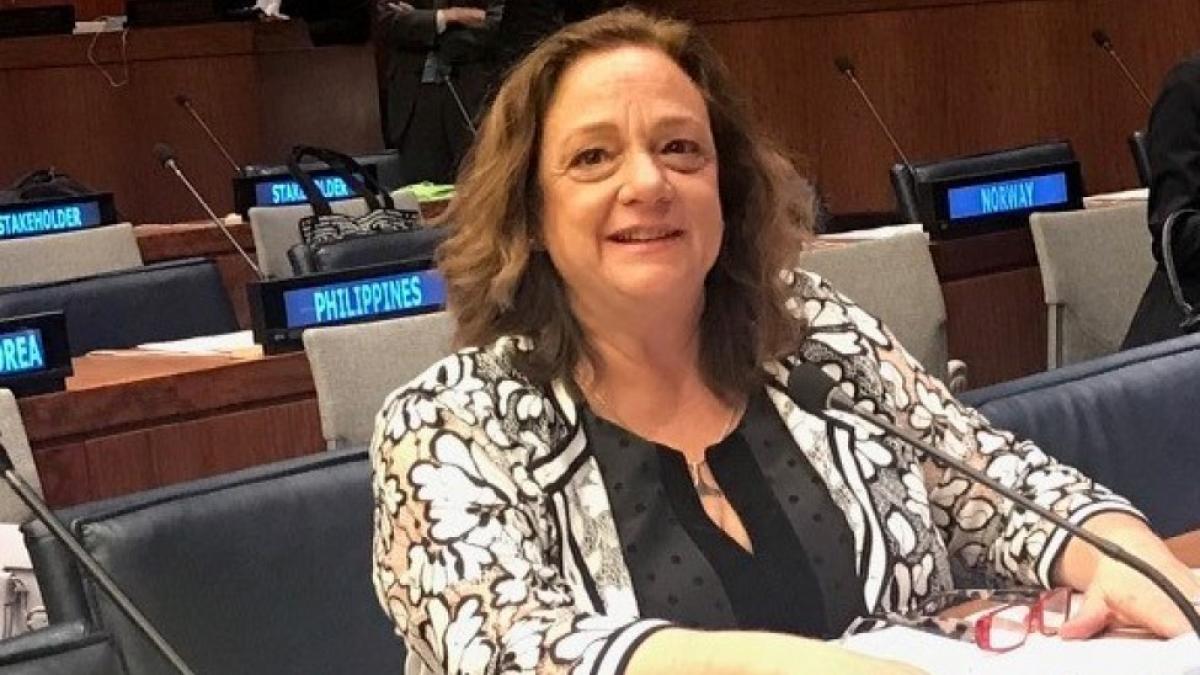
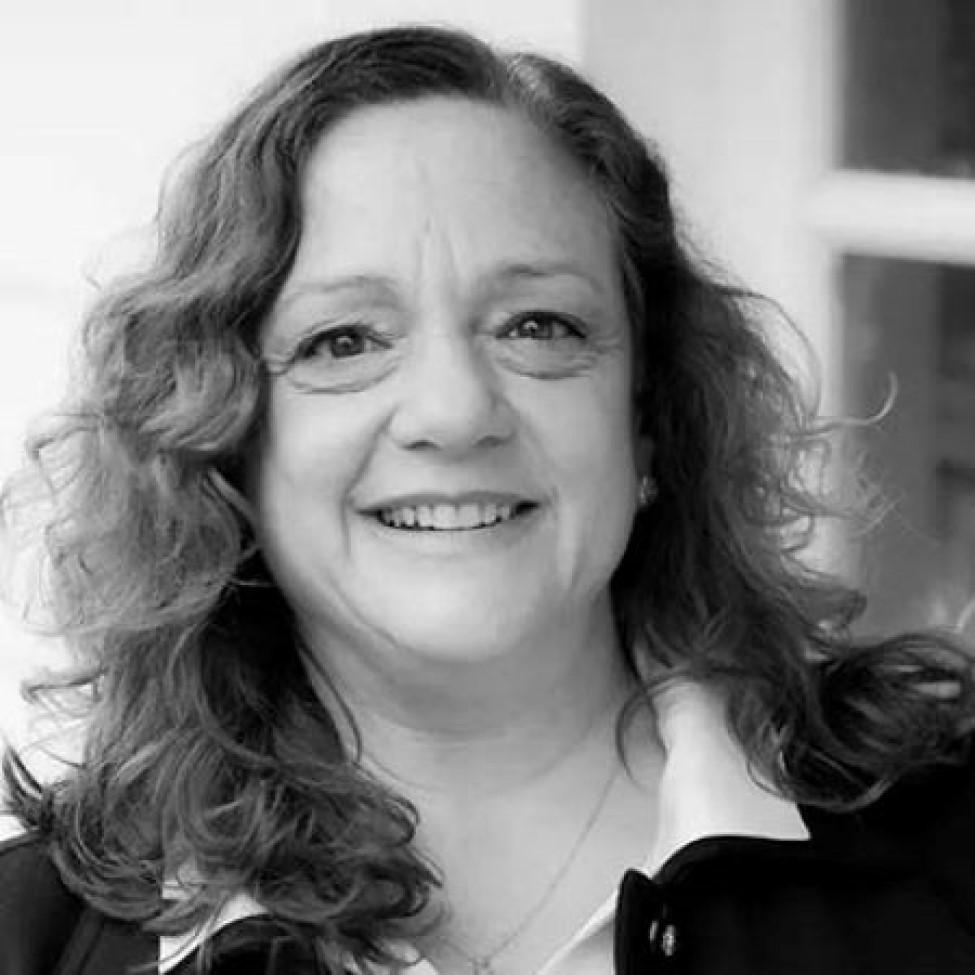
Donna Lanzetta ’86 grew up on Eastern Long Island surrounded by water, but it wasn’t until she was an adult that the ocean took on more than a recreational meaning in her life. “After thirty years of civil litigation culminating in stress related health issues, I decided to make a concerted effort to de-stress and eat healthier – that included major changes to my diet, including eating more seafood,” said Donna. “As I looked closer, I was shocked to see our shellfish and eelgrasses have virtually disappeared, with 99% gone. At the same time, our wild capture fisheries are at maximum sustainable capacity. Then I learned that the United States is importing over 90% of our seafood. I studied the matter further to learn about ocean farming, and its potential to feed the world with responsibly raised protein, protein grown in balance with the environment. Considering sustainability, responsibility, and protein production in the face of climate change, I realized that, done right, ocean farming is part of the solution.”
Donna started a self-proclaimed independent study program, learning as much as she could about seafood and sustainable production. “I began to travel within and outside of the United States to attend conferences and learn more – at the time there was a lack of formal education programs on this topic.” Donna was fortunate enough to have had the invaluable benefit of touring working farms around the world. “I learned about organic production in Canada, about seafood certifications, and more. I also learned about the negative – the illegal, unreported, and unregulated (IUU) seafood, about seafood fraud and mislabeling. The United Nations SDGs brought it all together for me, and I was compelled to take action.”
Today, Donna is CEO & Founder of Manna Fish Farms, Inc., along with a number of related companies. Her mission: feed the world with sustainably grown seafood. “It’s time to build science-based support for ocean mariculture proving that protein production is possible in the ocean in balance with the environment.” To do this, The Manna Companies will use the latest technology to support responsible behavior and ensure balanced operations. “We must work with one another to site farms in the least impactful locations. The time is now. Seafood protein is the fastest growing protein sector, and the most environmentally sustainable protein to feed our growing world population. Consider it: Seafood is the last protein that we commercially hunt for, and the farming of seafood is a natural progression, on land and at sea. Let’s develop an ocean farming industry that operates in balance with the environment, without chemicals and overcrowding.”
Recently, Donna became an advisory board member on Haub Law’s Sustainable Business Law Hub. To serve and give back to her alma mater was important to her. “It has been uplifting to watch Haub Law’s Environmental Law Program grow over the years to national acclaim. The Sustainable Business Law Hub is a potential platform to teach about the importance of a sustainable future, including sustainable aquaculture and permitting, as well as the legal issues surrounding those practices. Most importantly, I feel it is a forum where I might contribute, with a hope to influence positive change and responsible aquaculture industry development.”
As a business owner, Donna works seven days a week, taking time off when she can for church, friends, travel, and her new grandchildren. Donna acknowledges that time management is a challenge, “I am so excited about what I am doing, building the Manna Companies and brands, that I forget to schedule time for my family and myself.” When asked about advice for future law students, Donna notes that it is important to learn the foundations, and then build upon them, which has propelled her towards her goal of a sustainable and climate smart future.
Bryn Goodman '11: Partner, Fox Rothschild LLP
Since 2013, Bryn Goodman has served as co-coach of Haub Law’s team for the prestigious Willem C. Vis International Commercial Arbitration Moot.

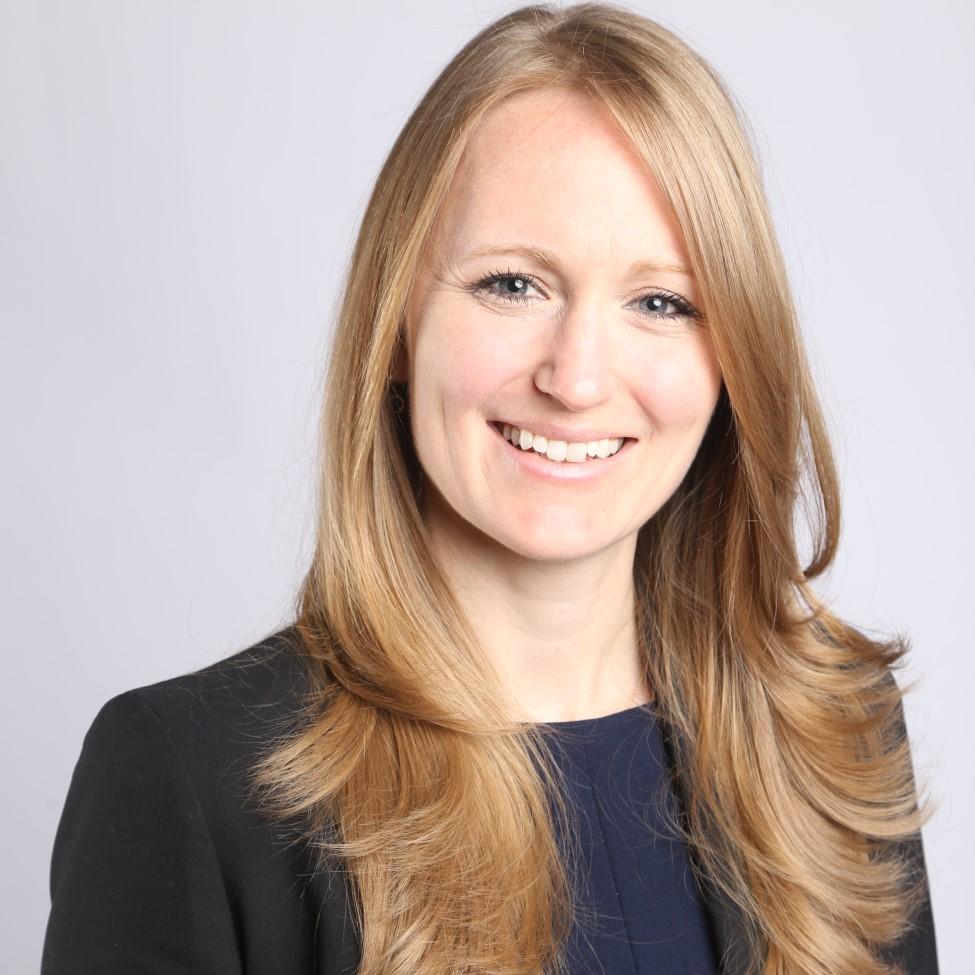
Since 2013, Bryn Goodman has served as co-coach of Haub Law’s team for the prestigious Willem C. Vis International Commercial Arbitration Moot. “Coaching has been an incredibly enriching experience for me because of the valuable lessons I've learned from the students,” said Bryn. “I've found that I've gained just as much, if not more, from coaching as I did when I was a student myself. It's a true pleasure to witness the growth of students over the course of the six-month competition.”
Founded by the Elisabeth Haub School of Law at Pace University, the Willem C. Vis Moot is the world’s premier international commercial law moot court. Held each spring in Vienna, Austria, the moot involves an arbitration of a dispute arising out of a contract of sale between two parties in countries that are parties to the United Nations Convention on Contracts for the International Sale of Goods. This moot provides experience in commercial arbitration skills and provides an opportunity for students to develop international commercial law expertise. “Participating students in the Vis moot undergo an academically challenging experience where they gain insights into procedural issues associated with drafting and enforcing arbitration agreements,” said Bryn. “They also acquire knowledge about what to anticipate during an arbitration proceeding and how to navigate the rules of an arbitral institute. The competition offers students not only a chance to enhance their advocacy skills but also an opportunity to understand the intricacies of arbitration and its relationship with domestic enforcement procedures.”
While Bryn was a student at Haub Law, she was very involved in the School’s Trial Advocacy Program and in particular, found her participation on the Vis Team to be transformational. “In the program, I spent two years on the Vis Team, which turned out to be the most rewarding experience during my time in law school. We competed against more than 300 teams from around the world, addressing issues related to the validity of arbitration agreements and breach of contract. While it might sound straightforward, it demanded extensive research and rigorous practice to refine our arguments. This experience was the most effective in preparing me for a legal career, and I believe many others in Pace's Trial Advocacy program share this sentiment.”
Today, Bryn is a partner at Fox Rothschild LLP, a leading national law firm. Her specialized area of practice focuses on employment law, where she offers guidance to companies on potential disputes and various HR-related matters. She represents clients in both federal and state court cases and administrative proceedings. She also notes that ADR is an essential tool for lawyers and in her day-to-day practice. “In my practice, I regularly negotiate and mediate cases. In the labor and employment context, arbitration is also frequently used,” said Bryn. “Many federal courts even mandate mediation as a means to reduce the case load of judges. Whether handling commercial contracts, corporate agreements, or employment contracts, lawyers should be able to assess whether ADR is available and appropriate and the enforceability of a dispute resolution clause. Creative ADR strategies can greatly benefit clients, making it necessary for lawyers to understand how to use it to their advantage to be the best possible advocates.”
Prior to applying to law school, Bryn spent a year in France teaching English and then moved to New York City where she worked as a paralegal. It was Haub Law’s international law certificate program that intrigued her to apply. She continued to work as a paralegal in New York City throughout her first and second years of law school, which she notes made balancing work and classes a constant juggling act.
“During my second year, I also took on the added challenge of joining the Willem C. Vis International Commercial Arbitration Moot Team. This presented new challenges of learning different writing and oral advocacy skills and working with a team,” said Bryn. “By my third year, I had stopped working outside of school, but I intensified my academic commitments. I became involved in the Investor Rights Clinic, held the position of Managing Editor for the Pace Law Review, served as co-captain of the Vis Moot team, and was a Dean's Scholar. Managing these responsibilities allowed me to develop strong skills in time management and prioritization, ultimately enhancing my legal skills and preparing me for the demands of professional practice.”
Today, as coach of the Vis Moot team, Bryn feels fortunate to have a part in students’ personal and professional development through the competition. “Learning and change are not always easy, but by the end of the program, everyone has made significant progress in their writing and oral advocacy skills. Each year brings new challenges as the competition introduces novel legal issues, and each team exhibits unique dynamics. It is also amazing to keep in touch with many former students and track their success. I feel so lucky to have had an opportunity to coach all these years.”
Bryn’s advice for students or graduates with a particular interest: “Do not be discouraged if you don’t land your dream job right after law school. Any job you take after law school equips you with valuable skills that will likely benefit you throughout your career. Gain experience, but also take steps toward your goal by getting involved, volunteering, networking, joining relevant committees. Focus on building a resume that reflects your ongoing commitment to your desired area of practice, and you'll eventually achieve your goal.”
On the weekends, you can catch Bryn in Central Park running, on a bike ride, or the Peloton if it’s raining, and spending time with her family.
New Book Compares Steps to Combat Air Pollutions in Two Major Cities
Dean Emeritus Richard Ottinger, of the Elisabeth Haub School of Law at Pace University, and Professor Wang Xi, of Kunming University of Science and Technology in China, have published a book that compares efforts to curb air pollution in two of the world’s largest urban areas, Los Angeles and Beijing. Their book, A Tale of Two Cities: A Comparison of Air Pollution Governance in the Los Angeles Area of the USA and the Beijing-Tianjin-Hebei Area of China, was more than 8 years in the making and the product of a joint study with Renewables 100 Policy Institute.
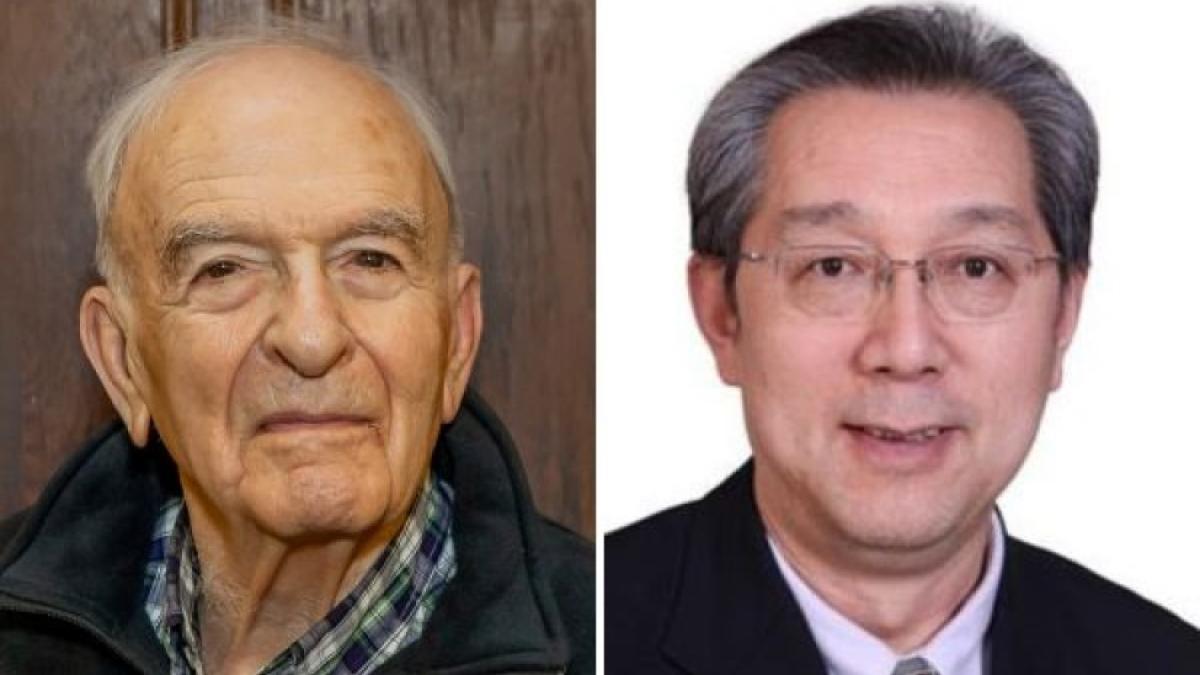
Dean Emeritus Richard Ottinger, of the Elisabeth Haub School of Law at Pace University, and Professor Wang Xi, of Kunming University of Science and Technology in China, have published a book that compares efforts to curb air pollution in two of the world’s largest urban areas, Los Angeles and Beijing. Their book, A Tale of Two Cities: A Comparison of Air Pollution Governance in the Los Angeles Area of the USA and the Beijing-Tianjin-Hebei Area of China, was more than 8 years in the making and the product of a joint study with Renewables 100 Policy Institute.
According to the book’s publisher, Wolters Kluwer, “A Tale of Two Cities is an exceptional book focusing on two of the world’s most prominent cases and exploring how people in the areas of Los Angeles and Beijing-Tianjin-Hebei (BTH) established remarkably similar governance processes to combat air pollution and how the major actors in each area worked to make their region a better place to live. Employing the expertise of teams of knowledgeable environmental law experts from both China and the United States, the authors identify and analyze similarities and differences in the respective legal and policy experiences as actors succeeded in greatly improving the air quality of their areas.”
“We decided to produce a joint study to show what steps Los Angeles took to reduce its air pollution, which is quite a remarkable story, because decades ago, the pollution there was so thick that you could hardly see across the street,” said Dean Emeritus Ottinger.
“We also show what steps Beijing is taking to mitigate its serious air pollution problems. Not long ago, they had to close down their local economy and tell people to stay home because the health risks were so serious. Hopefully, our study will be useful to any state, city or local government that is grappling with solutions to the problem of air pollution,” he said.
“Our joint study develops a useful model of environmental governance that encompasses the relationship between regulatory agencies and the entities they regulate, government entities and regulators, and polluting entities and society at large,” added Professor Wang Xi. “In spite of great differences in the politics and cultures of these two cities, there are clear similarities in the way they worked to improve air quality.”
Dean Emeritus Ottinger is co-director of the Pace Global Center for Environmental Legal Studies. He founded the Pace Energy and Climate Center at the Elisabeth Haub School of Law at Pace University, which advocates for climate change mitigation and promotion of clean energy resources. In his 16 years as a member of the U.S. House of Representatives, he authored a substantial body of energy and environmental laws. He was one of the earliest environmentalists in Congress in 1965.
Professor Wang Xi, a leading China environmental law scholar advocating with Kunming University of Science and Technology, was previously a professor of Wuhan University and Shanghai Jiao Tong University, and served as visiting professor at the Elizabeth Haub School of Law at Pace University in 2014. Professor Xi was named a recipient of the 2020–2021 Elisabeth Haub Award for Environmental Law and Diplomacy, one of the world’s most prestigious environmental awards. He was instrumental in the development of Chinese environmental law, a new area of growing importance. He has since been a key influencer in a major revision to China’s framework environmental protection law, which was accepted and adopted by the Chinese National Congress in 2014.